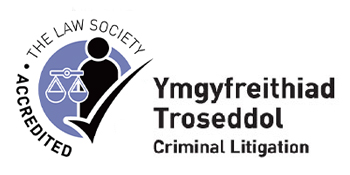STRAIN
A'I GWMNI
AND COMPANY
14A Stryd Penlan, Pwllheli, Gwynedd

Increase in sentences for aggravation related to disability, sexual orientation or transgender identity (Saesneg yn unig)

Dyddiad: 2020-06-02
Section 146 of the Criminal Justice Act 2003 states that if the following circumstances are present, it must be treated as an aggravating factor during sentencing, and in this article we look at ways that you can mitigate its effect:
Those circumstances are —
That, at the time of committing the offence, or immediately before or after doing so, the offender demonstrated towards the victim of the offence hostility based on —
(i) the sexual orientation (or presumed sexual orientation) of the victim,
(ii) a disability (or presumed disability) of the victim, or
(iii) the victim being (or being presumed to be) transgender, or
that the offence is motivated (wholly or partly) —
(i) by hostility towards persons who are of a particular sexual orientation,
(ii) by hostility towards persons who have a disability or a particular disability, or
(iii) by hostility towards persons who are transgender.
“Disability” means any physical or mental impairment and references to being transgender include references to being transsexual, or undergoing, proposing to undergo or having undergone a process or part of a process of gender reassignment.
Sexual orientation means (see s 12 Equality Act 2010) a person’s sexual orientation towards —
(a) persons of the same sex,
(b) persons of the opposite sex, or
(c) persons of either sex.
Awareness & Mitigation
On occasion, aspects of hostility can be seen to be deep-rooted in a person’s upbringing, and there can be a strong case made for addressing these issues before any sentencing hearing.
This is an aspect of restorative justice that can significantly influence any sentence.
In O’Brien [2004] EWCA Crim 2572 the court observed:
“The importance of the Restorative Justice Programme has been stressed in the courts. It is a significant matter when victim and offender agree to meet if the outcome is a settled and clear intention to keep clear from crime in the future and to acknowledge the effect on the victim and the seriousness of the past offence. This court in R v Collins [2003] EWCA Crim 1687 stressed the need for courts to bear in mind, when sentencing, the significance of such a programme which was described by this court as being by no means a soft option.”
We will always seek to find ways to minimise both the sentence passed and also the chances of future criminality. Do not hesitate to contact us and discuss the pro-active ways in which we can work with you and others to produce the very best outcome in your case.
How can we help?
If you need specialist advice, then get in touch with Rhys Tudur on 01758 455 500 and let us help. We can advise on a plea, defences and potential sentences in a wide range of circumstances.
Yn ôl i'r prif dudalen blog.
Mae Ein Arbenigedd yn Cynnwys:
> Anaf Personol
> Cyfraith Teulu
> Trosedd
> Ymgyfreitha Cyffredinol
Gwybodaeth Defnyddiol
> Ariannu a Costau
> Cysylltiadau a Gwybodaeth Pellach
> Cydnabyddiaeth a Cymhwysterau
> Geirda
Cysylltwch â Ni
Cyfeiriad: 14A Stryd Penlan, Pwllheli, Gwynedd
Ffôn: 01758 455500
E-bost: office@strainandco.co.uk

© 2025 Strain a'i Gwmni. Rheolir ac Awdurdodir gan yr SRA rhif 644052. Cedwir Pob Hawl. Rhybudd Preifatrwydd.
Gwefan gan Delwedd.